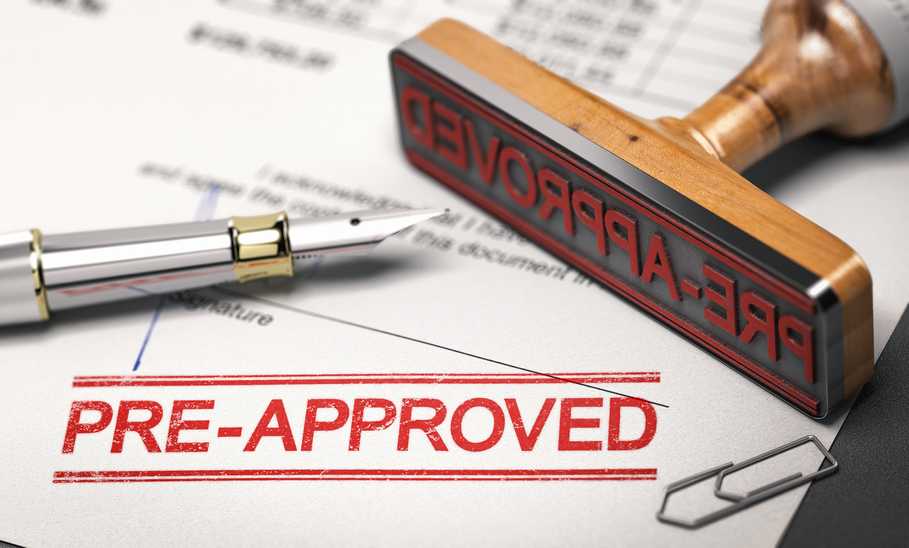How Long Is a Mortgage Preapproval Good For?

Our evaluations and opinions are not influenced by our advertising relationships, but we may earn a commission from our partners’ links. This content is created by TIME Stamped, under TIME’s direction and produced in accordance with TIME’s editorial guidelines and overseen by TIME’s editorial staff. Learn more about it.
A mortgage preapproval is the first official step some buyers take in the home-buying process. After reviewing your financials and credit score, a lender commits to providing a specific interest rate and up to a certain loan amount for you to buy a home.
Mortgage preapprovals are usually good for up to three months. If you’re actively searching for a house to purchase, a mortgage preapproval can show the seller you’re serious about buying and help get your offer accepted. Plus, it can make the mortgage application process easier.
Home shoppers can find out how much mortgage they qualify for, and at what interest rate, with a mortgage preapproval. The lender takes your financial information—such as your income, debts, and credit score—to determine the maximum loan size for which you qualify. A mortgage preapproval can also provide a monthly payment estimate, which can help when budgeting for a mortgage.
A mortgage preapproval letter is an essential part of house-hunting. It will show real estate agents and sellers that you’re ready and qualified to buy the home you’re interested in.
The timeframe it takes to get preapproved for a mortgage can vary. If the lender accepts mortgage prequalification applications online, and you have the necessary financial information ready, it can take less than an hour to fill out the application. You could be preapproved the same day, in some cases. If the lender has to ask for more documentation, the process can take longer.
A mortgage preapproval is the first step to getting a mortgage loan. Lenders have to review your financial information to determine if you qualify. When applying for a mortgage preapproval, be prepared to provide:
Besides taking into consideration your income and debts, lenders also check your credit history. Most lenders want to see a credit score of at least 620.
You can request a free credit report at AnnualCreditReport.com.Reviewing your credit report from each of the three credit bureaus—Equifax, Experian and TransUnion—will ensure there are no errors on your report that could have a negative impact on your credit score.
If you find an error on your credit report, you should dispute it with the appropriate bureau to get it corrected before submitting your preapproval application. Applying for preapproval requires a hard inquiry on your credit report, whereas pulling your free reports doesn’t affect your score.
By taking this step, you can ensure your credit information is correct or take the necessary action to correct it, which can improve your score. The better your credit score, the lower your mortgage interest rate and the more loan options you have for funding your home purchase.
How long a mortgage preapproval applies depends on the lender. Most lenders will provide a mortgage preapproval letter that expires within 60 to 90 days. Not only can interest rates change during the preapproval window, but so can your financial situation. Either can affect your maximum borrowing potential, which is why lenders don’t want to take on the risk beyond 90 days.
If you don’t find a home within the preapproval timeframe, your letter will expire and you’ll have to be reapproved. You can choose to stay with the same lender or go to a new lender for reapproval. If you stay with the same lender, it may require updated bank statements or income verification and will likely do a credit report refresh. If you choose a new lender, you’ll have to submit a new application and provide the necessary documentation for review and approval.
If there are no financial changes, the lender should provide a new mortgage preapproval letter with a fresh expiration date. If there are changes, it could affect your interest rate and loan amount.
Positive changes could increase how much you can borrow or reduce your interest rate. Negative changes, such as a lower credit score or debt increase, could lower your maximum loan amount or increase your interest rate. Some changes might even make you ineligible, which means the lender won’t provide a new mortgage preapproval letter.
It’s not just about you, either. External events, such as the state of the economy or new regulations, can also affect the size and cost of the mortgage being offered from one month to the next.
If you are serious about buying a house soon and are actively house-hunting, it’s a good time to apply for a mortgage preapproval. The preapproval is the first step to securing a mortgage loan and can help you understand how much you can afford and which price range to shop in. It will also give you an idea of what your mortgage payment will be, so you can make sure it fits your budget.
Having a realistic budget and tracking your credit score during the home-buying process can ensure you get the best terms and interest rate. There are also plenty of tools out there to guide you, including the Quicken, which can help create a budget that automatically tracks your spending and investments enabling you to find more ways to save money. When buying a house, solid financials are essential.
Since a mortgage preapproval letter is only good for a few months, it’s best to wait until you’re actively looking and ready to buy before proceeding. Getting preapproved too soon may cause the preapproval to expire before you find the right home. If this happens, you’ll have to be reapproved, which could negatively impact your credit score.
If a lender provides a mortgage preapproval after reviewing your financials, it means it is committing to providing a loan when you find a home you want to buy. A mortgage prequalification is not a lender commitment; it’s just an estimate of how much a prospective home-buyer can qualify to borrow.
A prequalification rarely requires as much financial information as a preapproval. The lender will review your credit history and income to determine your loan capacity, but it’s not a guarantee it will provide a loan to purchase a home. What prequalification can do is help you decide whether you have the financial resources to go house-hunting and narrow your search to properties lenders are likely to believe you can afford. Think of a prequalification as the step before a preapproval.
When you’re seriously house-hunting, nail down that preapproval letter. Having it in hand when you decide to make an offer on a property will demonstrate to the seller that you are likely to receive financing. This could give you an edge in having your bid accepted if there are multiple offers. And it can make the mortgage process easier when you’re ready to go to contract.
Mortgage preapprovals constitute a hard inquiry and leave a mark on your credit score Luckily, inquiries don’t have a big impact on your credit score. What’s more, as long as all the mortgage inquiries are within a 14-day window, you should only see one hard inquiry on your credit report. A hard inquiry can stay on your credit report for up to two years.
If you don’t use your preapproval before it expires, you’ll have to requalify, which means you might have to resubmit proof of income and debt to be reapproved. After the bank completes the review, it will provide a new preapproval letter, which will have a new expiration date.
Yes. Showing proof of the size of your down payment is part of the prequalification process. The amount you can put down on your mortgage can affect the type of loan for which you qualify and the total size of the loan.
The information presented here is created by TIME Stamped and overseen by TIME editorial staff. To learn more, see our About Us page.



